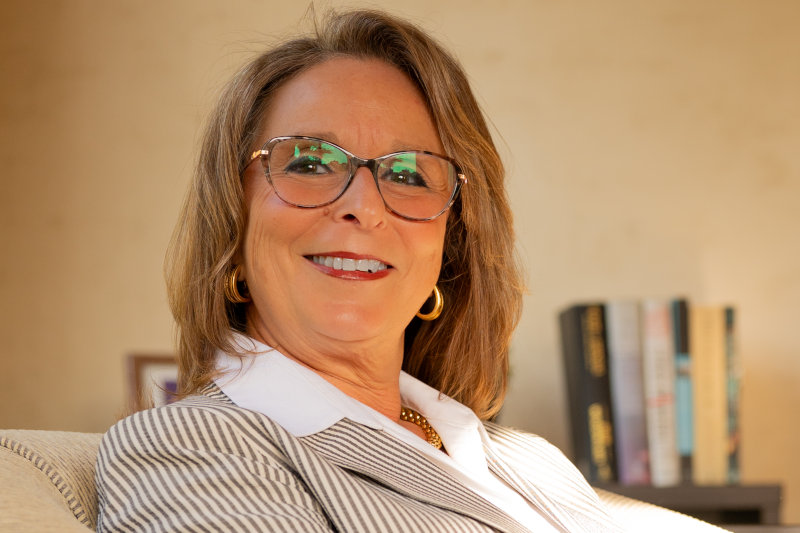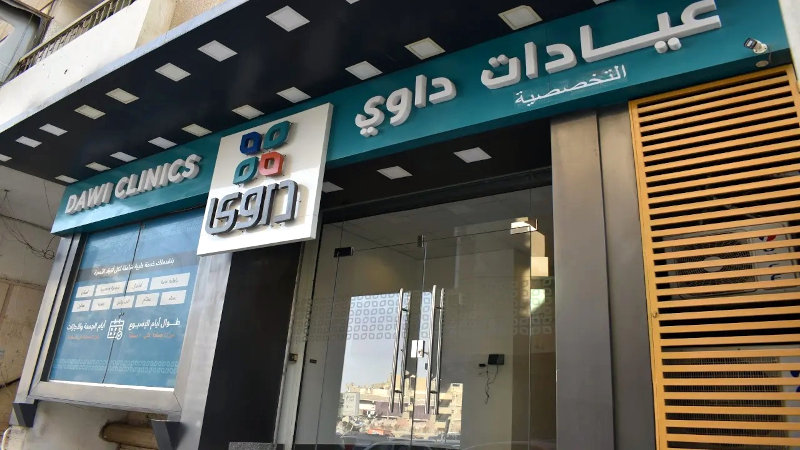
Magda Habib
Interview with Magda Habib
CO-FOUNDER, DAWI CLINICS
Lives in: Egypt
The Starbucks of healthcare. This is how a chain of clinics in Egypt that Magda Habib has co-founded and built to 30 branches has been described. Her husband disagrees, saying McDonald’s is a better comparison, arguing that Starbucks is too expensive in the North African country.
Similar to these global chains, her ambition is for Dawi to be a household name that offers a consistent standard of medical care at a price middle-class Egyptians can afford.
After leaving her role at Egyptian payments company Fawry – where she worked from 2008 until 2016 – Habib took some time out. She met various people for coffee to explore potential opportunities, though none of those discussions went anywhere.
Then, one day, a friend, Nader Eskandar, floated the idea of building a chain of healthcare clinics. They both felt that Egypt’s healthcare system was deeply disorganised.
Egypt’s health sector was split between an under-resourced public system and a fragmented private one. People with limited means relied on public facilities, where queues were long and infrastructure strained. Those who could afford private care – about half the population – encountered a different set of problems.
General practitioners were scarce, leaving patients to diagnose themselves and choose a specialist, often without knowing whether it was the right one for their condition. Medical records weren’t kept centrally; patients were responsible for carrying their entire history from one doctor to another. If a new physician questioned the accuracy of previous tests, the patient had to repeat them, adding further cost. Even those who could afford private care often waited four, five, or six hours to see a doctor. The result was inefficiency, overspending and a frustrating experience for patients.
But neither Habib nor Eskandar had any background in healthcare, and without a physician they could not turn the problem they had identified into a business. The missing piece arrived unexpectedly over a Christmas lunch. There, Habib met Dr Mairose Doss, a distant relative of her husband – a general practitioner with experience in hospital management. As Habib described the concept, Dr Doss immediately lit up. “I was just chatting [to her] about the idea, and her eyes grew wide, and she loved the idea,” Habib recalls. “We clicked in terms of mindset and enthusiasm.”
Dr Doss left her job at a family clinic to help establish Dawi Clinics, becoming the new company’s chief operating officer. Habib took on the role of chief executive.
***
Dawi Clinics aimed to bring order to Egypt’s fragmented private healthcare system through an affordable network of standardised clinics with set appointment times, general doctors as the first point of care, and medical records kept centrally across branches. If a patient had an appointment at 15:15, the doctor would see them at 15:15 – an uncommon concept in Egypt at the time.
One of the first hurdles was regulatory. Egypt had no legal framework for operating a chain of clinics. The founders spent months consulting lawyers, being told repeatedly that it could not be done, until they eventually found a workaround. “We had to set up a medical company and a management company and an asset management company and had a very convoluted corporate structure to have some proper legal framework to work with,” Habib says. For a young company, it was a heavy administrative burden, but there was no alternative.
With the structure finally in place, Habib and Dr Doss opened their first two branches. Starting small proved useful. “There was a lot to learn, a lot to adjust and fix about the business model,” she says. Their initial plan placed general practitioners (GPs) at the heart of the Dawi Clinics model, based on the view that many routine conditions did not require a specialist. But two obstacles emerged almost immediately: there were few GPs available to hire, and patients were accustomed to going straight to a specialist, regardless of how minor the illness might be.

Dawi Clinics currently has 30 branches.
“The concept of being a GP doesn’t really exist in Egypt,” Habib says. If a child had ear pain, parents wanted the best ear, nose and throat (ENT) doctor in town, not a family doctor, even if a mild infection could be treated cheaply and quickly with antibiotics instead of seeing a specialist. The same dynamic applied on the doctors’ side. Few wanted to go into general practice because specialist fields paid more and were in higher demand.
“Both on the supply side and on the demand side, this concept of enforcing a GP as the gateway to other specialties, which is the correct thing to do from a medical perspective, was absolutely not feasible to implement. So, after fighting with it for a while, we gave in,” Habib explains.
In the end, they stopped trying to impose the GP-first approach and began hiring more specialists. That shift required significant adjustments to their pricing and to the broader business plan.
“When you do a business plan on paper, it has absolutely nothing to do with what happens on the ground, no matter how much research you do, and we had done a lot of research,” Habib says.
In 2018, with four branches in operation, Dawi Clinics attracted its first institutional investor: the Egyptian-American Enterprise Fund which Habib also worked with during her time at Fawry. Its investment allowed the company to continue expanding its network of clinics.
***
Convincing doctors to join Dawi was difficult in the early days. The model was new, Habib and Dr Doss were largely unknown in the medical community, and having two women lead the venture was unconventional in Egypt. “The first few branches were very tricky,” Habib says. “We hired whoever agreed to work with us, and they weren’t all a good fit in terms of way of work and culture.” As the clinics became more established, the team was able to be more selective.
Because the clinics serve the middle-income segment, Dawi has limits on how much it can pay its doctors. Physicians with thriving private practices serving wealthier clients can earn more. But Habib says there is a large group of doctors who want a stable income without the burden of running their own practice – buying supplies, managing infection control, training nurses, dealing with tax paperwork, and maintaining equipment. For those doctors, she says, Dawi removes much of the administrative load.
She adds that Dawi also appeals to doctors who prefer working as part of a team rather than running a solo practice. “If you’re a dentist and you have your own practice, you will make more money,” she says. “But you spend your entire career alone in a room with a patient that cannot even talk back to you. It’s a very lonely career.”
***
In 2023, Dawi Clinics raised about $8 million in a round led by Al Ahly Capital Holding – the investment arm of the National Bank of Egypt – alongside its earlier backer, the Egyptian-American Enterprise Fund. At that point, the company had 20 branches and employed more than 260 doctors.
Running a network of dispersed clinics has proved demanding. Each site, Habib says, has to deliver the same standards of hygiene, infection control and patient interaction. “Rollout is not just a matter of money,” she says. “It’s a matter of having all these institutionalised policies and procedures and ways of doing things, so that you end up getting the same quality of service, whether you go to our Assiut branch or our Shebeen El-Kom branch.”
Experience has helped them refine the model. New branches now reach profitability more quickly. “We have a very clear sort of recipe for opening branches and bringing them into a positive contribution margin individually,” she says.
Today, Dawi operates 30 outlets – half in Cairo, the rest spread across governorates around the country. Habib does not expect the company to need further outside investment. “Our cash flow is very healthy and that allows us to continue our growth more organically.” She believes the Egyptian market could accommodate around 100 Dawi Clinics.
In September 2025, Habib handed the chief executive role to Dr Doss, who now oversees the company’s day-to-day operations. Habib has shifted her focus to growth initiatives and longer-term strategy.



